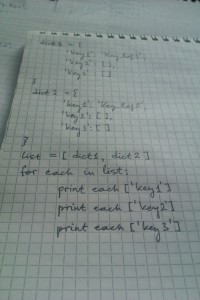As I have already mentioned, it’s not easy being me. In addition to my already formed nice and balanced ‘curriculum’ I have enrolled in yet another MOOC on Deep Learning, or DLMOOC. It begins in a week’s time, on 20 January and it ends on 21 March. It is another instance of a so-called mechanical MOOC, similar to Python MOOC, and also created by P2PU. This one is for educators. Well, as a person who has already launched two data-expeditions and is totally resolved to keep doing it in the future, I thought it might be a good idea to kind of learn a bit more about education in general. And this seems to be a very nice chance, because this MOOC has already collected more than 600 participants, that is educators from all over the world.
To be honest, I don’t think I’ll be able to be a very valuable contributor in terms of active participation, because I still have to work, learn pre-calculus and data analysis. And yes, we’ll have to launch our next expedition one day too (in spring I hope). But I’m sure I’ll still receive lots of valuable experience. I already have. I do like the communication system of DLMOOC with a G+ community as central platform. Although I’m not sure yet if it is appropriate for data-expeditions. It also has a flexible cooperation mechanism with an option to choose whether the participants want to work in ‘offline’ (friend-to-friend) groups or join into virtual groups. And it’s very interesting to see how it is going to develop and work. I will try to make notes on the way and share them here.


